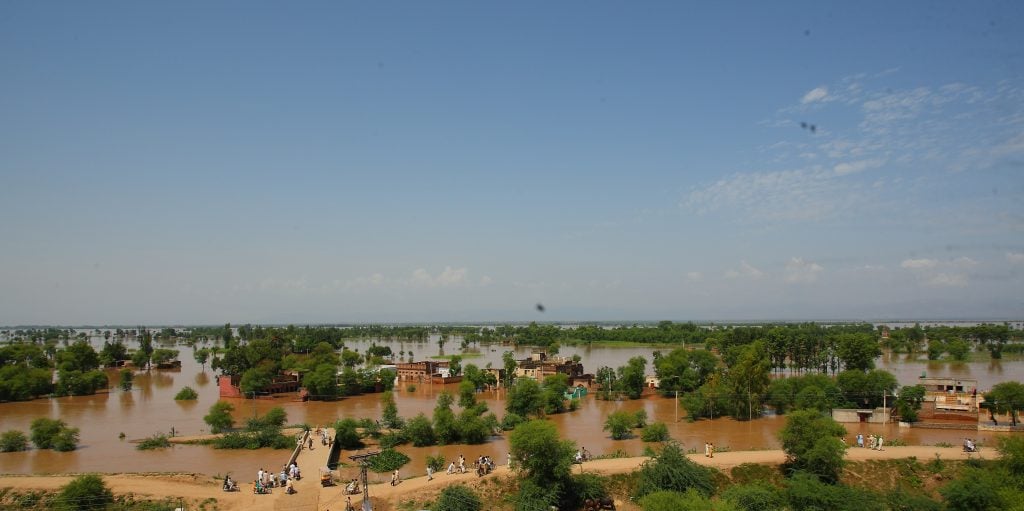Key messages:
- The COVID-19 pandemic is having a huge impact on global food chains, with transport and border restrictions impacting the flow of products, few options for physical distancing in production or processing factories, and stricter travel and immigration constraining the availability of trained harvesters.
- As part of our engagement focus this year on sustainable food, we will engage companies across the food chain to understand the challenges they face, and encourage them to make the protection of worker wellbeing an immediate and ongoing priority.
The impact of COVID-19 on the global food chain has been dramatic. Queues at food retailers, short supply of key goods and the difficulties of shopping whilst physical distancing have impacted a vast swathe of the global population. In production – specifically in meat processing plants – the lack of distancing options or virus-appropriate protection gear has seen many workers fall ill and plants closing. Meanwhile, with the commercial supply chain coming to a halt, we have also seen a rise in food waste.
Here we explore the food-related challenges of the COVID-19 crisis, and the role of investor engagement.
How has food supply been impacted?
As with many other supply chains, food systems are complex and global, and are currently experiencing a combination of disruptions:
- Harvest disruption: It is harvest season in many regions of the northern hemisphere. This theoretically secures food availability locally for the duration of the season. Agriculture hugely relies on cheap but experienced and flexible labourers. With borders closed, low-wage labour – for example from Central and Eastern Europe, or South America (also largely in lockdown) for their richer neighbours – has become scarce. Despite quickly developed exemptions, such as specific visa programmes, many farmers fear large parts of their crops going to waste.
- Production disruption: Production has been completely halted in various sites across the world due to virus outbreaks among staff and difficulties implementing physical distancing. Examples include pork processing and meat packaging plants, such as those owned by US producers Smithfield and Tyson. For others, production might be halted over a lack of ingredients – for instance, a UK food producer we engaged on their COVID-19 response is relying on spices from India, which has now stopped all airline traffic.
- Transport and trade disruptions: Some ports are not operating as usual, and shipping may be delayed or cancelled. Freight trains or lorries may not cross borders, and some countries have stopped all flights to limit the spread of the virus.
- Export restrictions: Even if transport is still allowed, export restrictions might disrupt delivery. Turkey, responsible for one third of the global lemon supply, has limited export of the product. Russia, Ukraine and Romania are among those halting grain exports. While currently these restrictions are still exceptions, their impact is still being felt. The reduction in grain exports is impacting livestock farmers, with some already struggling to find enough feed for their herds.1.
- Switch from commercial to retail demand: Patterns of food consumption have changed dramatically as people eat at home rather than at work or in restaurants, meaning that food demand has suddenly switched from commercial to retail. But retail and commercial supply chains fundamentally differ in terms of the quantities, sizes, formats of delivery and packaging, as well as ordering mechanisms – meaning that excess demand in retail could not be matched with excess supply in commercial, leading to loss of income and food waste.
The most critical impacts of a failure to address these challenges will be felt in the world’s poorest countries. The UN’s World Food Programme highlighted2 that the number suffering from hunger in consequence of the COVID-19 crisis could go from 135 million to more than 250 million, with least developed nations most affected3 – increasing the human impact of this pandemic beyond those immediately affected by the virus, and presenting a serious threat to the achievement of SDG 2:
End hunger, achieve food security and improved nutrition and promote sustainable agriculture.
In some agricultural regions, droughts and plagues of locusts add further complexity.
Engagement angle
One of our engagement priorities for 2020 is around ‘sustainable food systems’. In scope of this equity and fixed income engagement are retailers, traders and food producers. The pandemic has made this focus even more relevant.
Whilst the pandemic is beyond the scope of any normal contingency planning exercise, it reinforces the case for supply chain stress testing and effective business continuity plans, as well as for strong relationships with suppliers rather than relying on third parties. We also welcome steps taken by some companies to recognise the financial strains their suppliers are under, for instance by ensuring early or at least prompt payment of invoices due.
A key focus area of our engagement will be worker protection. The food chain is labour-intensive, and characterised by badly paid, often physically demanding jobs. We will use our engagement to address and further investigate the additional challenges that the pandemic has brought, such as the difficulties in implementing physical distancing in environments such as factories and food stores. Where good practices have emerged, such as paid sick leave, we will seek to encourage these to be made permanent.
Further engagement options include financial institutions, through encouraging their support of commercial clients in the food business, including grants, mortgage holidays and debt relief discussions. Sovereign debt engagement could feature discussions around minimisation to restrictions on export and trade, as well as on responsible stockpiling.
Investor responsibility & conclusion
The task of ensuring food security and business continuity is a complex one, with challenges including protecting workers, shifting supply chains from commercial to retail, and financially supporting farmers and related industry actors.
Investor engagement can only be one small part of the solution but given the scale of the issue it is important to do what we can. Working with other investors, we seek to highlight examples of best practice and share these more widely, as well as pressing companies with poor standards to step up to their wider responsibilities.
Investors are not purely financial but also social actors with a corporate responsibility. To address hunger, and with that SDG 2, debt relief programmes implemented by the G20 will need a capital markets’ replication. In line with the call by the G204, private creditors need to “explore the options for the suspension of debt service payments”5 to relieve some of the poorest nations of their immediate repayment requirements so they can focus on securing and distributing food for their populations.
2 2020 – Report on Global Food Crises https://www.wfp.org/publications/2020-global-report-food-crises
3 The countries most affected are likely Yemen, the Democratic Republic of the Congo, Afghanistan, Venezuela, Ethiopia, South Sudan, Sudan, Syria, Nigeria and Haiti.
4 Private sector should join poor countries’ debt relief plan, FT, May 2020: https://www.ft.com/content/f4de06d4-8af3-11ea-a109-483c62d17528
5 G20 Communique of Finance Ministers and Central Bank Governors Meeting, April 2020







